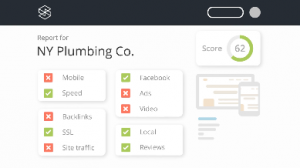Retweeting has been popular since Twitter arrived. But it has been abused. Now Twitter has put measures in place to make manic retweeters think twice.
Twitter has, like many other social media platforms recently, been trying to make sure that any content you see on feeds is worthy content. That’s why Twitter has just announced that it is testing a new button that will allow people to be protected against the sharing of misinformation or all dated content. Essentially, users will be encouraged to not retweet something that they haven’t read yet.
It happened in the summer, and already Twitter is saying that it has produced some great results. Basically, if a user is looking at the headline and has the obvious option of reading the post rather than just retweeting it, Twitter puts up a message suggesting that the user might want to read before the retweet. This has many potential benefits. One of the most obvious ones concerns misinformation.
Misinformation is a major issue online. All the key social media channels have been burnt by misinformation, or even ‘fake news’ if you will, being spread across their network. It’s hard to stop misinformation because the platforms are an area for free speech. If a new approach could encourage people to think twice before just re-tweeting something without reading it first, something known as ‘blind re-tweeting’, it is a step in the right direction.
And Twitter has stated that the results so far have been encouraging. First up, it says that people are opening articles 40% more than they usually did without the prompt. This means that upon seeing the prompt, more people are generally clicking through to read the full article. This is obviously a good thing, because it means that there is less of an inclination to speedily retweet something that has not been read first. When it comes to misinformation, this is a definite step in the right direction.
On a less effective level, but still impressive, Twitter reckons that 33% of people at least open up the articles before the retweet. Again, this gives more exposure to posts, and at least slows down the spread of misinformation.
Finally, and in a strangely funny way, Twitter states that some users, it won’t specify the actual figure, ended up not retweeting the articles they found. This again is not a bad thing, and can even suggest that quality is being able to shine through. If you’re not going to think about retweeting an article after reading it, the chances are it is of no interest to you or of poor quality. Either way, it’s a good thing due to the amount of poor information on social media at the moment.
One thing that Facebook has done that Twitter has not yet tried is to add a further prompt. Any posts that are over 90 days old will receive a prompt for the user to again think about re-sharing. This is an attempt by Facebook to reduce the amount of out of date information online. In recent days, this is more important than ever. News in the world seems to be changing on a daily basis, sometimes quite dramatically. And the spread of fake news is a particular problem. Old news is generally out of date.
Android only
Twitter innovations in this area are only available on Android at the moment. It is hoped that they will spread to other platforms. But we have thought about another use for this particular approach. Social media marketing is all about sharing and endorsing. If it’s possible that this will stop social media marketers from sharing just to gain new exposure it is a good thing. It is still a common practice for marketers and brands to share almost on a spammy level, so as to reach quotas on number of tweets and retweets and so on. Anything that stops this intensive use of share and retweet buttons is a good thing. Maybe now social media marketing will up the game a little, and sharing and retweeting will be done for the right reasons.
While that may sound a little cynical, remember one thing. It takes a huge number of tweets to build reach and engagement on Twitter. And retweets count as tweets. They always have done. Now, if people are thinking twice before the retweet, this may cut down on the amount of spam retweeting.This will pave the way for high-quality social media marketing on purpose. And that is something we are excited to see.
Digital & Social Articles on Business 2 Community
(19)









